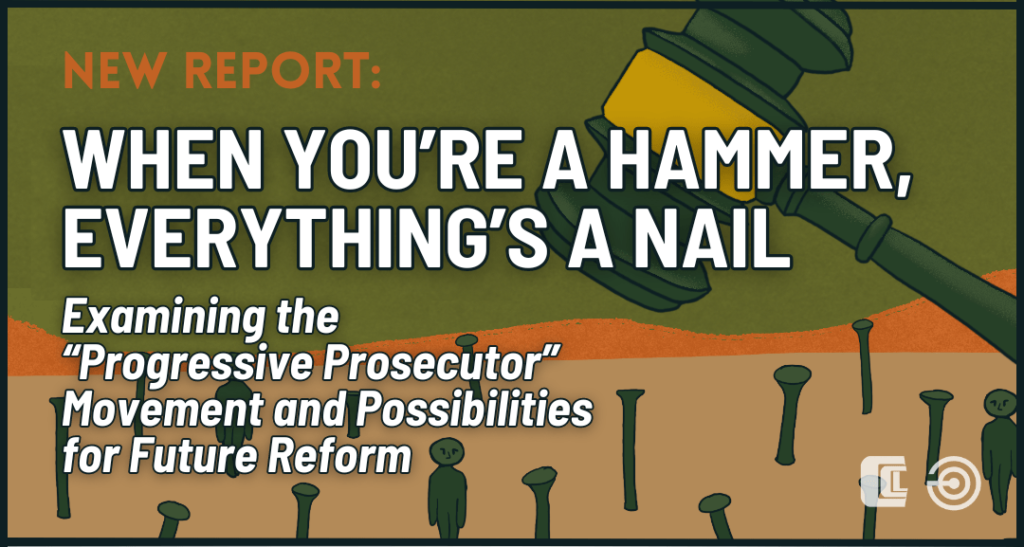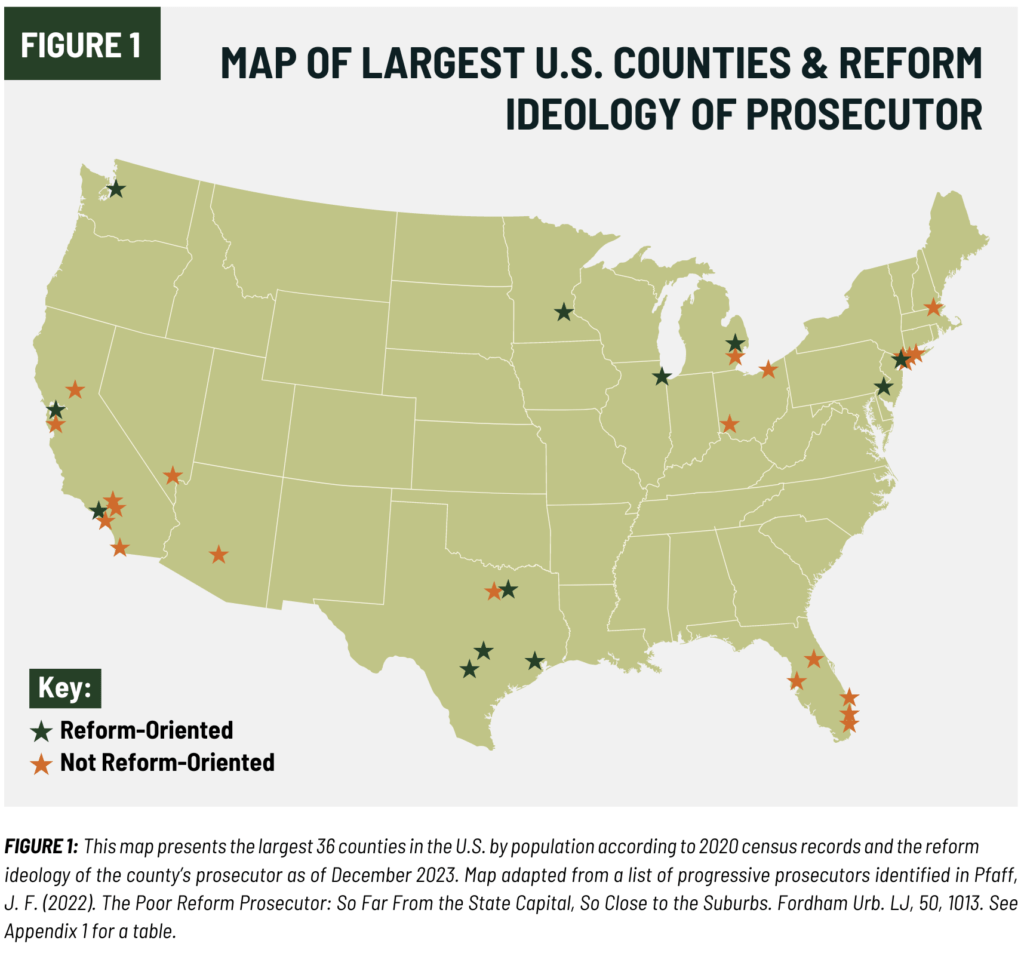NEW REPORT – When You’re a Hammer, Everything’s a Nail: Examining the “Progressive Prosecutor” Movement and Possibilities for Future Reform

Byline: Naomi Johnson (she/they) is the Co-Executive Director of Chicago Appleseed Center for Fair Courts. They lead all research and policy projects for the organization – centering community voices alongside evidence-driven approaches. Naomi graduated from Washington University in St. Louis with a BA in Anthropology and received their Master’s (AM) from the University of Chicago’s Crown Family School of Social Work, Policy, and Practice
.
NEW REPORT – When You’re a Hammer, Everything’s a Nail: Examining the “Progressive Prosecutor” Movement and Possibilities for Future Reform
Chicago Appleseed Center for Fair Courts and the Chicago Council of Lawyers have released our new report: When You’re a Hammer, Everything’s a Nail: Examining the “Progressive Prosecutor” Movement and Possibilities for Future Reform.
This report is a high-level examination of ideas behind the nationwide “progressive prosecutor” movement, culminating from over six years of research conducted by Chicago Appleseed, the Chicago Council of Lawyers, and our various community partners. Prosecutors are among the most powerful criminal legal system actors; they make decisions around whether or not someone receives a conviction, prison sentence, and permanent criminal record. The term “progressive prosecutor” is a broad generalization that is used to encompass people campaigning for positions as elected prosecutors (primarily State’s Attorneys and District Attorneys) using a reform- based agenda. While there is a broad political, procedural, and ideological spectrum of elected prosecutors who may be framed as part of the “progressive prosecutor” movement, any reform-minded prosecutor has the power to reduce some of the harms inherent to the criminal legal system.
In this report, we use the term “reform-oriented prosecutor,” as opposed to “progressive prosecutor” because our research has shown significant concerns with the term and conflicts with the idea of “progressive prosecution” in theory as well as in practice. The term “reform-oriented prosecutor” broadly refers to prosecutors that aim to use their discretionary powers to reduce mass incarceration and inequity in the criminal legal system.
As we discuss in detail throughout the report, Chicago Appleseed Center for Fair Courts and the Chicago Council of Lawyers are uniquely positioned to examine the phenomenon of reform-oriented prosecutors because of the many years of research we have conducted on the Cook County State’s Attorney’s Office (CCSAO) since Kim Foxx was elected in 2016. From the time State’s Attorney Foxx took office in December 2017 through September 2022, Chicago Appleseed Center for Fair Courts and the Chicago Council of Lawyers collaborated with The People’s Lobby and Reclaim Chicago to publish nine reports on the policies and practices of the CCSAO. The purpose of these reports was to examine, among other things, the state and status of the campaign promises made by SA Foxx, who was elected as a reformer – a “progressive prosecutor”—after the long tenure of her predecessor, tough-on-crime prosecutor Anita Alvarez.
In our new report, we discuss (a) the history of the “progressive prosecutor” movement on a national and local level, (b) the broad spectrum of reform-oriented prosecution and what commonalities cause certain prosecutors to be considered under the umbrella of “progressive,” (c) the critical issues with the term “progressive prosecutor” and the conflicts that arise because of it, and (d) our vision for how prosecutors of the future can contribute meaningfully to criminal legal system reform.

Broadly, reform-oriented prosecutors use their discretionary powers to reduce mass incarceration and inequity in the criminal legal system. They tend to employ a set of similar policy priorities (to varying degrees), such as: non-enforcement, diversion, decarceration, police accountability, reform of administrative practices, and advocacy for criminal legal system reforms.
In the report, we also provide a toolkit for voters who are concerned about accessibility, transparency, and justice to use when voting prosecutors in their area.
We suggest voters evaluate “progressive” or “reform-oriented” prosecutorial candidates by asking the following questions:
- Will they reimagine responses to harm and use their power to push for changes to public safety narratives?
- Do they understand that diversion is not an automatic solution for decarceration?
- Do they recognize that the legal system is not a social service agency and support efforts for better services outside the system?
- Will they engage the community in meaningful ways?
- Are they committed to using data for intentional change?
- Do they intend to build on efforts to enhance transparency of their office?
While these are not the only considerations that should be made when electing reform-oriented prosecutors, they’re a start. The aim of our report is to provide the public with a more nuanced understanding of this spectrum so they can make informed electoral decisions.
